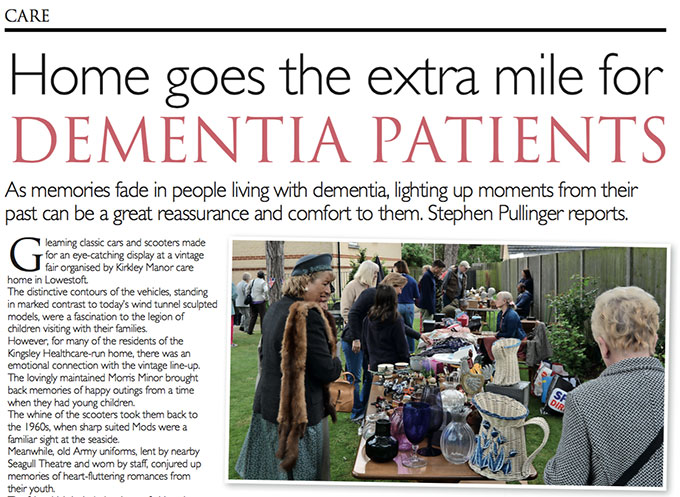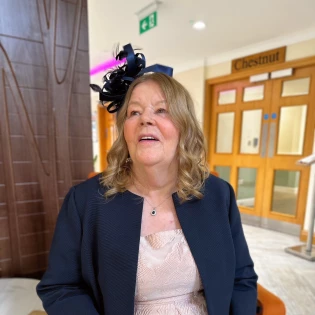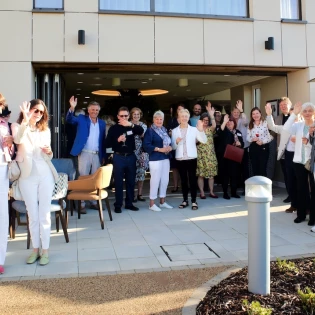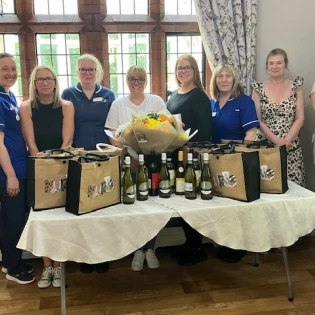Home goes the extra mile for Dementia patients
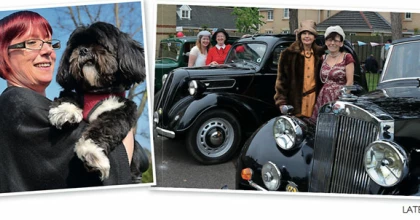

The distinctive contours of the vehicles, standing in marked contrast to today’s wind tunnel sculpted models, were a fascination to the legion of children visiting with their families. However, for many of the residents of the Kingsley Healthcare-run home, there was an emotional connection with the vintage line-up. The lovingly maintained Morris Minor brought back memories of happy outings from a time when they had young children. The whine of the scooters took them back to the 1960s, when sharp suited Mods were a familiar sight at the seaside. Meanwhile, old Army uniforms, lent by nearby Seagull Theatre and worn by staff, conjured up memories of heart-fluttering romances from their youth. The fair, which included a vintage fashion show and stalls selling bric-a-brac from bygone days, was the inspiration of Kirkley’s activities co-ordinator Carole Cook and manager Dani Gaston. Dani explained that helping people to reconnect with their past was especially important in a home like Kirkley, where the majority of residents are living with dementia.
As well as providing fun for the whole community, the vintage fair had also been staged as a form of reminiscence therapy. She said: “There is evidence that life story and reminiscence work, particularly when done one-on-one, can improve mood, wellbeing and some mental abilities such as memory. “By talking about who they are, people with dementia can help others focus on them, and not their dementia.” Dani said many items in the home had also been chosen to rekindle memories of earlier days. “Carole has brought a collection of commemorative spoons into the home, which are really good for getting people talking. “And we have old jewellery out and about which residents can identify with – it all helps interaction at visiting times.”
She said other reminiscence work included liaising with families to create life story albums of old photographs. “Reminiscence therapy can be helpful to us as explostaff, too, asring older people’s past and present lives with them, particularly the circumstances which have shaped their experiences, potentially provides greater insights into their needs and aspirations,” she said. At Kirkley, one of their residents, Doug, was a good example of how reminiscence therapy worked. “At the age of 14, Doug was an apprentice chef working with his father,” said Dani. “He loves talking about that time and we have helped bring it all back to him by giving him access to our kitchen. “He has struck up a rapport with our head chef and has started helping out in the kitchen making sandwiches and baking cakes.”
Another resident, Sybil, had derived much comfort from an album of family photographs compiled by her relatives.
Source: Later Life Magazine
Author: Stephen Pullinger
